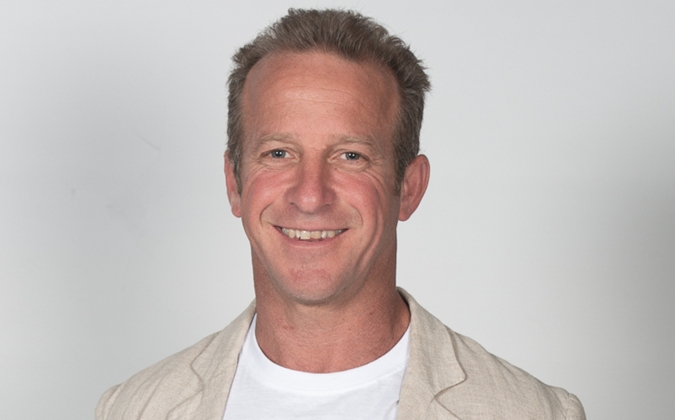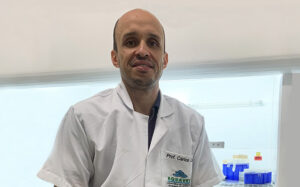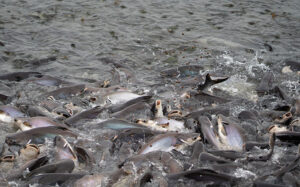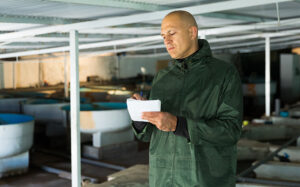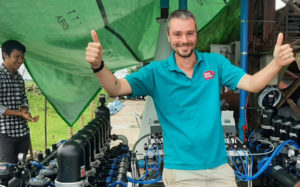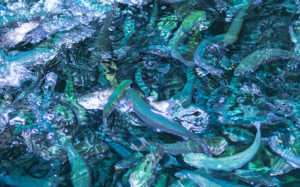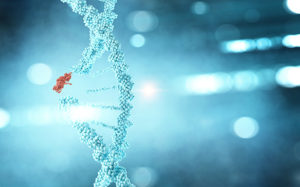The value of veterinarians in ensuring sustainability for Africa’s fast-growing aquaculture industry
Sub-Saharan Africa is enjoying an aquaculture boom — with fish health and welfare services moving in turn to meet the sector’s needs and ensure sustainable growth. In an interview, veterinarian Brandon Spolander, BVSc, MRCVS, SAVC, MSc, owner of Aquavet Africa, talks about engaging with the growing industry and addressing important gaps.
News & Trends
Automatic vaccination in tilapia farming: a new era is coming
By Carlos AG Leal, Professor of Immunology and Fish Health, Veterinary School, Federal University of Minas Gerais-UFMG, Brazil
Stomach-resistant oral vaccines could offer fish farmers easier vaccine administration
Oral vaccines hold a great deal of promise for fish farmers. Easier and quicker to administer than injected vaccines, they are also potentially suitable for fish that are too small for injection vaccination, including larval stages.
Managing health issues in the fast-changing aquaculture industry
An interview with Stian Johnsen, project manager for the World Organization for Animal Health
Combining technology and knowledge to improve aquaculture in Southeast Asia
Southeast Asia is one of the world’s fastest-growing regions for aquaculture, but production efficiency, environmental impact and disease remain bottlenecks for sustainable production.
Molecular testing sheds new light on troublesome microorganism which threatens fish
A new molecular approach has revealed the ubiquitous and opportunistic nature of Saprolegnia parasitica, a fungal-like microorganism that can cause significant disease and economic loss.
Harnessing genetics to improve tilapia health and performance
An interview with Alejandro Tola-Alvarez, CEO, GenoMar Genetics
The future of sea louse control on salmon farms: do genetic technologies hold the key?
Genetic technologies could give salmon farmers the crucial tools they need to prevent sea louse infestations, according to researchers.
The importance of benthic monitoring for aquaculture sustainability
An interview with Kate McEwen, head of environmental services at PHARMAQ Analytiq

